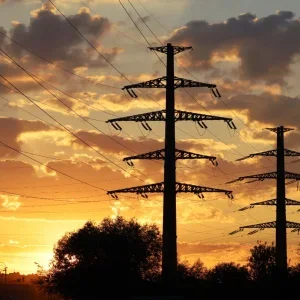
BC Hydro’s plans for the Site C Clean Energy Project is the ‘least expensive’ proposal to meet growing energy demand in British Columbia, Canada, a Joint Review Panel report has said.
The Joint Review Panel, set up by the federal and provincial governments in August 2013 to examine the project, said the benefits of the project are clear, although it did make a number of recommendations for project development. Despite high initial costs, and some uncertainty about when the power would be needed, the report says that the project would provide a large and long-term increment of firm energy and capacity at a price that would benefit future generations. The project would have lower GHG emissions than other alternatives (apart from nuclear which BC has prohibited), and offer a number of local and regional economic benefits.
"Based on our initial review of the report, we’re pleased that the Joint Review Panel confirmed that there will be a long-term need for new energy and capacity, and that Site C would be the ‘least expensive’ of the alternatives to meet this growing demand," said Charles Reid, President and CEO of BC Hydro. "We have an obligation to support BC’s economic growth and meet the long-term electricity needs of our customers, and that’s what we’re doing with Site C."
The Site C project is being proposed to meet long-term electricity needs in BC. BC Hydro forecasts that the demand for electricity will increase by approximately 40% in the next 20 years and new sources of supply will be required. An emerging liquefied natural gas (LNG) sector and significant electrification of vehicles could further increase the demand for electricity in B.C.
"While there will always be some variability with long-term load forecasting, our methodology has been independently reviewed and accepted by the British Columbia Utilities Commission, as well as a 2011 government review," said Reid.
Reid explained that BC Hydro’s analysis of resource options found that Site C provides the best combination of financial, technical, environmental and economic development attributes compared to alternatives.
"All new electricity-generation projects have environmental impacts, including Site C," said Reid. "That’s why BC Hydro has undertaken years of detailed studies to identify and assess potential effects from the project, and has proposed a comprehensive set of mitigation measures that are expected to largely offset these effects."
Questions over planned timetable
The Joint Review Panel report is part of a three-year environmental assessment process that has included more than 29,000 pages of evidence being filed by BC Hydro.
The report did question the planned timetable for the project, and said there would be some significant environmental impacts if the project goes ahead. It made a number of recommendations including setting minimum flow rates, and further study of downstream effects and impacts on ecology.
The report of the Joint Review Panel will now be part of the consideration by federal and provincial governments as they make a decision on environmental approvals for the Site C project. Decisions are expected within six months. The provincial government must also make a final investment decision.
If approved for construction, Site C would be the third dam on the Peace River and would be a source of clean and renewable electricity in BC for more than 100 years, providing up to 1100MW of capacity, and producing about 5100GWh of electricity each year.
Image: Artist’s rendition of the Site C Clean Energy Project, a proposed third dam on the Peace River. Courtesy BC Hydro






